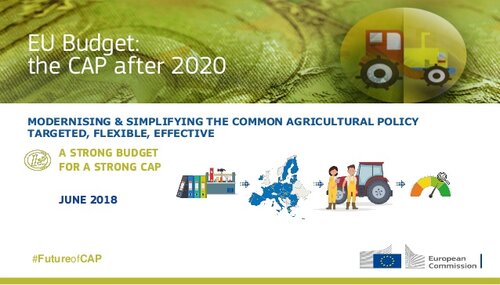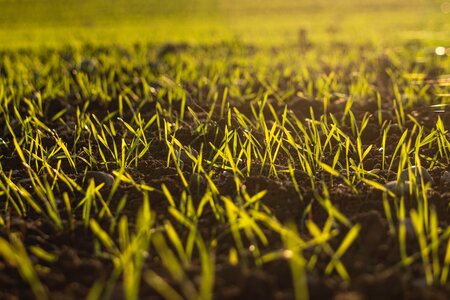Future Challenges and Opportunities for Innovation in Agriculture
Future Challenges and Opportunities for Innovation in Agriculture
Farmers, to successfully pursue their activity while integrating dealing with climate changes, consumer desires and political ambitions, need to be very innovative. Innovation in the agricultural sector is constantly taking place!
 The European Commission has presented ambitious Green Deal objectives to steer agriculture towards a climate-neutral and environmentally friendly direction. To reach these new ambitious targets, the agricultural sector will require major investments in new and more environmentally friendly technologies, scientific research, and an increase in farmers' level of education and skills.
The European Commission has presented ambitious Green Deal objectives to steer agriculture towards a climate-neutral and environmentally friendly direction. To reach these new ambitious targets, the agricultural sector will require major investments in new and more environmentally friendly technologies, scientific research, and an increase in farmers' level of education and skills.
The only path for farmers to reach these ambitious goals seems to be investing in new technologies, replacing current agricultural machinery with more environmentally sound ones, increasing the energy efficiency of buildings, and implementing other actions. But having the main financial burden on them, farmers will have to balance the costs of production and remain competitive. Therefore, farms are looking for various innovative technologies, which are expected to improve farming productivity, resources efficiency and sustainability. Innovation is essential for the viability of rural areas and to secure competitive EU family farming in future!
For example, to reduce nutrient leakage from fields, farmers are using minimal tillage technologies, precise fertilizer application technologies, preparing fertilization plans based on soil analysis, establishing buffer zones and wetlands, growing catch crops and nitrogen-fixing crops. And in order to reduce the use of plant protection products, farmers are planting more resistant varieties, using anti-drift flat spray nozzles and precision sprayer section control, practising plant rotation and plant diversification, monitoring weather and using forecast suggestions to plan work on a daily basis.
However, there are various challenges and different factors that still hampers these innovations in agriculture:
• Family farms are very conservative and pragmatic, with strong habits, based on knowledge and experience, oriented towards sustainable and long-term business. These farmers are willing to change their management practices only when they are offered solutions based on scientifically, socially, and economically justified research, not emotional and superficial knowledge of nature and agriculture.
• Population in rural areas is declining and the average farmers’ age is rising. Many farms do not have a generational renewal, and farms with older owners are not keen on the implementation of different innovations.
• Political inconsistency between EU political aims! Political aim “Farm to Fork” intends to reduce the use of plant protection products, which will require intensified tillage, including ploughing, to reduce weeds and limit the spread of various pathogens in the soil. However, this contradicts “Climate policy” and GHG reduction policy, which force to practice minimal tillage. In European Commission, there are plenty of ambitious strategies, that are contradicting between themselves.
 To implement innovation in agriculture and adapt to the “Green Deal” policy more quickly, farmers need well-developed rural infrastructure, economic strength, market stability, a scientifically justified policy with clear aims and financial possibilities to invest in modern technologies. Only then a majority of farms will be able to take over the challenge of being competitive, sustainable, and producing high-quality food. This setup will also be crucial to ensure that the farms can contribute to rural economies and fulfil environmental ambitions.
To implement innovation in agriculture and adapt to the “Green Deal” policy more quickly, farmers need well-developed rural infrastructure, economic strength, market stability, a scientifically justified policy with clear aims and financial possibilities to invest in modern technologies. Only then a majority of farms will be able to take over the challenge of being competitive, sustainable, and producing high-quality food. This setup will also be crucial to ensure that the farms can contribute to rural economies and fulfil environmental ambitions.
To achieve all these new goals, several innovations and modern digital technologies need to be introduced. Large farms may have sufficient resources to implement such technologies, however, great attention must also be paid to medium-sized and smaller farms, so that they can choose the best and most appropriate technology from a wide range of options. Projects such as SmartAgriHubs allow farmers to implement already tested innovations and technologies, also to participate in experiments and participate in the further dissemination of results.


